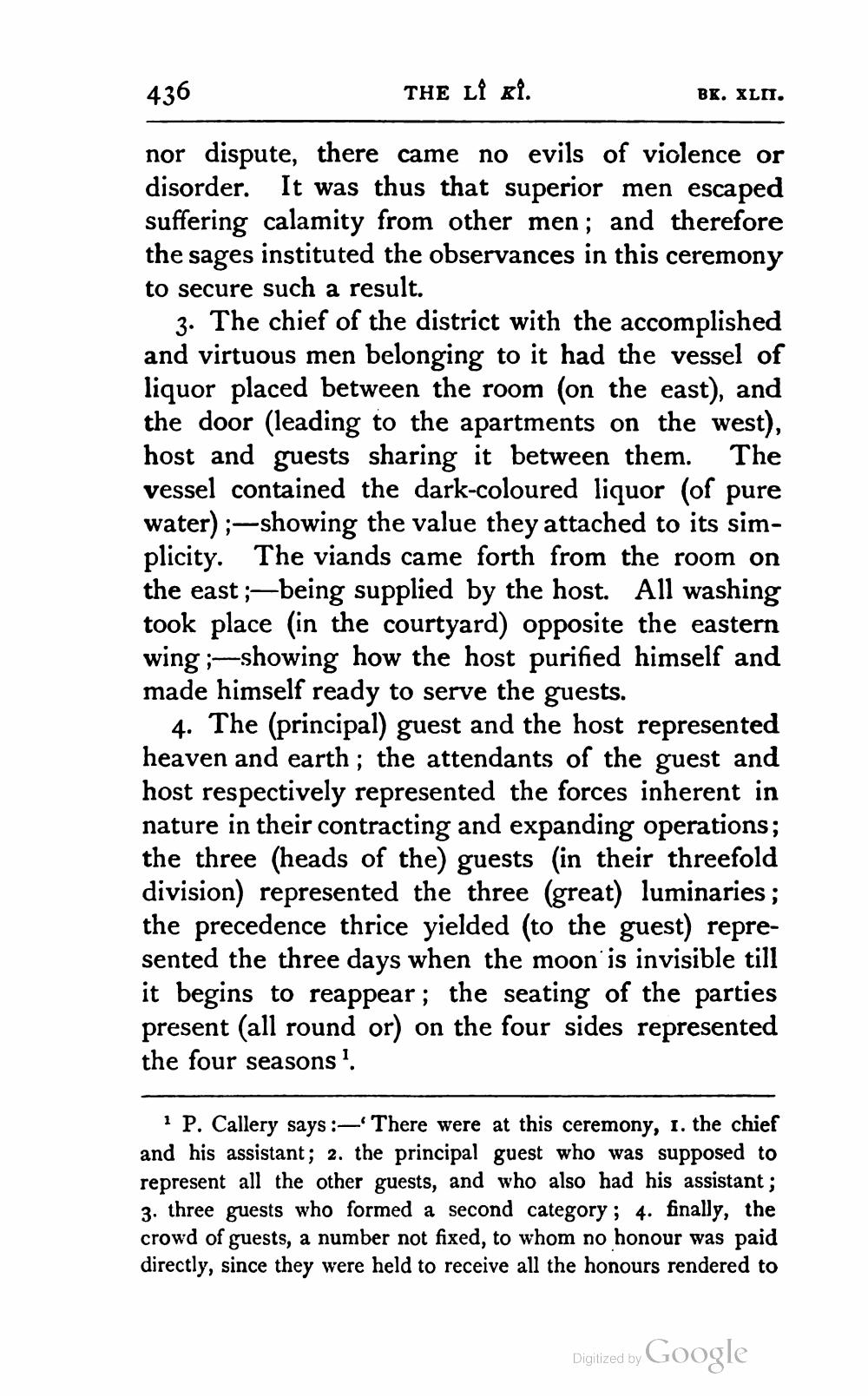________________
436
THE LI Kİ.
nor dispute, there came no evils of violence or disorder. It was thus that superior men escaped suffering calamity from other men; and therefore the sages instituted the observances in this ceremony to secure such a result.
BK. XLII.
3. The chief of the district with the accomplished and virtuous men belonging to it had the vessel of liquor placed between the room (on the east), and the door (leading to the apartments on the west), host and guests sharing it between them. The vessel contained the dark-coloured liquor (of pure water);-showing the value they attached to its simplicity. The viands came forth from the room on the east ;-being supplied by the host. All washing took place (in the courtyard) opposite the eastern wing-showing how the host purified himself and made himself ready to serve the guests.
4. The (principal) guest and the host represented heaven and earth; the attendants of the guest and host respectively represented the forces inherent in nature in their contracting and expanding operations; the three (heads of the) guests (in their threefold division) represented the three (great) luminaries; the precedence thrice yielded (to the guest) represented the three days when the moon is invisible till it begins to reappear; the seating of the parties present (all round or) on the four sides represented the four seasons 1.
1 P. Callery says:-'There were at this ceremony, 1. the chief and his assistant; 2. the principal guest who was supposed to represent all the other guests, and who also had his assistant; 3. three guests who formed a second category; 4. finally, the crowd of guests, a number not fixed, to whom no honour was paid directly, since they were held to receive all the honours rendered to
Digitized by
Google




